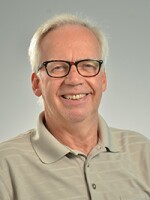As Major League Baseball’s regular season draws to a close, the Kansas City Royals are hoping to avoid the dubious distinction of breaking the team record for losses — they’ll need fewer than 106 by Oct. 1.
But recent baseball talk around Kansas City has been less about the lack of winning, and more about where a new baseball stadium should be built.
Even after months of hype from the team’s official channels about the benefits of a new stadium, the only thing fans seem to agree on is what they’ll miss most about the current, 50-year-old home field.
“Being able to hang out with friends in the parking lot beforehand — you and 50,000 of your closest friends,” said tailgater Daniel Ambler, of Louisburg, Kansas, before the Sept. 17 game against the Houston Astros. “I think that’s the thing I’ll miss most.”

Make no mistake: Ambler is excited about a new stadium in the Royals’ future, whether it’s in downtown Kansas City, Missouri, or North Kansas City. But he’s worried the so-called Ballpark District that would surround both possible sites could severely curtail his tailgating tradition.
There’s another problem, too, from his view: Neither of the recently-released renderings includes the massive outfield crown, which lends itself so well to Kauffman Stadium’s aesthetics.
“It’s arguably right up there, as far as (being) beautiful, with the fountains and everything,” said Ambler. “Crown Vision is fantastic, and it’s just a classic stadium.”
Ambler’s not alone.
Piper Hahn traveled recently from Wichita to celebrate her birthday with friends in the Kauffman Stadium parking lot. She likes the prospects of the proposed downtown location, but she acknowledges partying there won’t have the same feel — or price tag.

“That’s a bummer, because you spend a lot more money having to go to all the bars,” said Hahn. “I’ll miss tailgating and I’ll miss Crown Vision, but it looks like it’s going to be cool.”
‘A big boon to downtown’
Hahn’s birthday celebration is common consumer behavior, according to Western Kentucky University psychology professor Rick Grieve. He’s published multiple papers on fan behavior, and thinks baseball games are particularly conducive for such gatherings.
“If we just look at, ‘Why are you sitting here in these seats? Why are you coming to the games?’” said Grieve. “Those clusters of motivations will drive people there.”
Grieve said those motivations are also what will keep people coming back, once the shine has worn off a new stadium and its surrounding areas — but they’re not guaranteed.

“Amenities will make it so that fans are interested in coming, I don’t know if amenities will keep them coming,” said Grieve. Instead, fans may think, “Now I’ve seen it once, I don’t know if I need to keep going to it.”
Still, the idea of more things to do around a new stadium appeals to Royals fans like Michael Fields, of Kansas City. Fields went to his first game of the season in September and likes the idea of new businesses springing up near the possible downtown site, which is now mostly just a collection of parking lots.
“There’s not really a lot of restaurants in this area (around Kauffman Stadium) specifically, but that’d be a big boon to downtown,” he said.
That boon is exactly the image the Royals have been touting to fans, taxpayers and government officials for months. Without a winning season since the 2015 World Series championship, and with more than 100 losses in three of the last six seasons, it’s a harder sell.

Add to that the fact that, out of 30 major league teams, the Royals rank 28th in attendance this season — only Miami and Oakland were worse.
Last week the Royals back-pedaled a bit. After promising a September decision on where to put the project, the club announced a delay. Team leaders now hope to announce a site before the prospect of public funding for the stadium goes before voters in April 2024.
“Although we will not have a site selected by the end of this month, we are more confident than ever that a world-class ballpark and surrounding district for entertainment, retail and housing will build on our region’s momentum, serve our citizens well and further establish Kansas City as a top tier destination for tourists,” the Royals said in a statement.
Regardless of which location they eventually choose, fans have come to realize one thing: A fond farewell to Kauffman Stadium is imminent.






